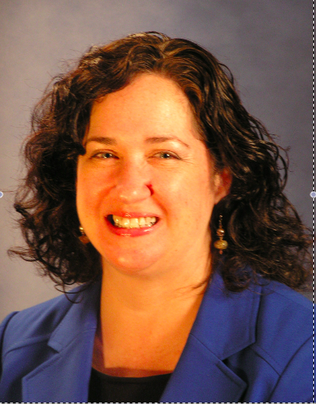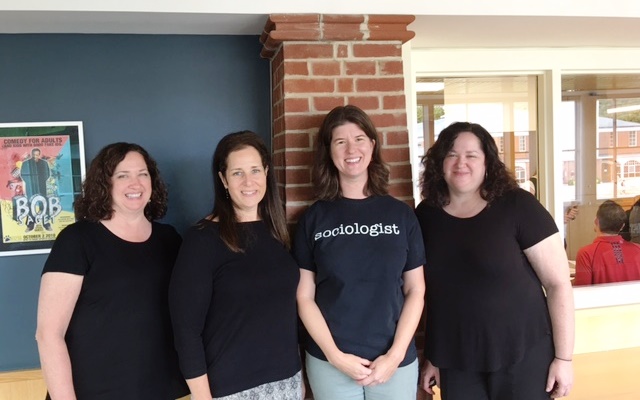AARP Eye Center
Guest blog by Donna Fedus, Gerontologist & Founder, Borrow My Glasses

Revolutionize Aging – a September 27 event conceived and sponsored by AARP Connecticut, Quinnipiac University, and Borrow My Glasses with
visionary geriatrician Dr. Bill Thomas serving as keynote – will address the need for all healthcare professionals and students to learn about aging and caregiving.
Future doctors, nurses, social workers, physical and occupational therapists are appropriately focused on their own discipline. However, few give much thought to how aging will impact their career or life, which often translates to fewer students enrolling in classes about aging or caregiving to supplement the courses in their chosen field of study.
All students, and others, also need to learn about aging and caregiving to be effective in their careers. Even professionals in pediatrics can expect to come in regular contact with older parents or younger grandparents or grandparents into their 80’s raising grandchildren, not to mention parents of young children who are in the sandwich generation also caring for aging parents.

Held on Quinnipiac’s North Haven campus, the Revolutionize Aging event will bring students, professors, professionals, consumers, and caregivers together to dialog about aging and change thinking, attitudes, conversations, and practice. Revolutionize Aging is planned as a kickoff to a wider campaign designed to change the way our culture perceives aging and to prepare students and current professionals to work with older adults and caregivers. It could serve as a model for replication in other colleges, workplaces, and community conversations around the country.
We are failing to prepare a workforce and citizenry equipped to address the predictable concerns of how to confront and capitalize on issues of aging and caregiving.
Findings from the landmark Retooling for an Aging America (2008) report and studies by Eldercare Workforce Alliance and the Council for Social Work Education (2011) spotlight the discrepancies and need for change:
• Less than 3% of medical school students choose geriatrics electives.
• While 75% of social workers report working with older adults, only 5% complete specialized geriatrics training at either the bachelors or masters levels.
• For physical therapists, 87% report working with older adults, while less than 1% are certified as geriatric specialists.
• Among practicing psychologists, 69% provide services to older adults, yet only 3% see geriatric patients as their primary professional target. Only 25% of psychologists were exposed to coursework in geropsychology.
• The number of registered nurses certified as gerontological is 1%, while the vast majority of nursing schools have no faculty members certified in gerontological nursing.
• Fewer than half of pharmacy schools have a distinct course in geriatrics despite the fact that per capita prescription drug use by people 65 and older is triple that of younger individuals.
• Fewer than one-fifth of schools training dentists, dental hygienists and other oral-health workers offer a course in geriatrics.
The reality of an untrained workforce matches poorly with demographics heralding longevity, and also with the occupations projected to have the most job growth between 2014 and 2024 by the Department of Labor Statistics. While projected growth in all occupations is 7% during these years, it is dramatically higher for home health aides (38%), personal care aides (26%), medical assistants (24%), nursing assistants (18%) and registered nurses (16%). And in 2024, the oldest baby boomers will only be 78, with many more years of contributions and service needs ahead of them.
The need extends well beyond the healthcare industry to touch all professions. Workers in finance would be well prepared to understand financial fraud and scams against their older clients, who are the most likely to have portfolios of the highest value. They should also be working now to develop services for clients with cognitive impairment and wealth transfer from one generation to the next. Engineers and product designers will add value to their organizations if they understand how to design environments and products from vegetable peelers to automobiles that account for age-related changes. Business and marketing students able to plan and position products and services to the three distinct segments of the 50+ market will contribute to their organizations, as will those wise to the needs of people in distinct life stage segments such as grandparents, empty nesters, and caregivers.
Even if not as professionals, students are certain to encounter caregiving in their personal lives. Millennials now comprise almost 25% of family caregivers, according to Caregiving in the United States 2015, a study by the National Alliance for Caregiving and AARP.
We are unprepared. To meet the predictable needs of society, it is critical for us to increase the rate at which we fill the pipeline with trained professionals and citizens ready to address issues of aging and caregiving in their jobs, in their communities, and in their own lives.
Revolutionize Aging will be held on September 27, from 8:30 a.m. to 12:30 p.m., at Quinnipiac University’s North Haven campus (370 Bassett Road in North Haven).
Registration is required online https://aarp.cvent.com/QUAging or by calling 1-877-926-8300.
Visit www.borrowmyglasses.com after September 27 to download the video toolkit or to discuss brining a program to your college, workplace, or community.























































